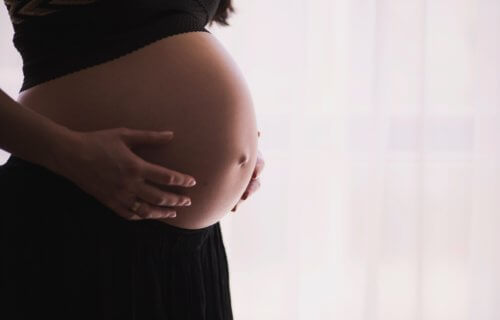BOSTON — A startling new study reveals there’s an increased risk of miscarriage during the summer months. Researchers from the Boston University School of Public Health (BUSPH) found that pregnant women in North America have a 44-percent higher risk of an early miscarriage (within eight weeks of pregnancy) in the summer — especially in late August — than they do six months earlier in February.
Moreover, the risk of miscarriage during any week of pregnancy is 31 percent higher in late August, compared to late February. Geographically, pregnant women in the South and Midwest were more likely to experience a miscarriage in late August and early September due to the hot weather.
“Any time you see seasonal variation in an outcome, it can give you hints about causes of that outcome,” says Dr. Amelia Wesselink, the study’s corresponding author and a research assistant professor of epidemiology at BUSPH, in a university release. “We found that miscarriage risk, particularly risk of ‘early’ miscarriage before eight weeks of gestation, was highest in the summer. Now we need to dig into that more to understand what kinds of exposures are more prevalent in the summer, and which of these exposures could explain the increased risk of miscarriage.”
For the study, researchers focused on 6,104 participants of the BUSPH-based Pregnancy Study Online (PRESTO), an ongoing National Institutes of Health-funded study that enrolls women trying to conceive and follows them from preconception through the first six months after delivery. These participants conceived within 12 months of enrolling in PRESTO and provided researchers information about pregnancy loss of any kind, the date of the loss, and the weeks of gestation at the time of their miscarriage.
Should lawmakers act to protect summer pregnancies?
The study is helping researchers to fill a gap in information on seasonal patterns in miscarriage. They hypothesize that exposure to heat is driving the increase in miscarriage risk during the summer.
“Few studies have examined the association between heat and miscarriage risk, so this is definitely a topic that warrants further exploration,” explains Dr. Wesselink.
Dr. Wesselink adds that clinicians, lawmakers, and climate experts must take action to mitigate the potential risks associated with heat exposure during pregnancy.
“We know that heat is associated with higher risk of other pregnancy outcomes, such as preterm delivery, low birth weight, and stillbirth, in particular,” notes Dr. Wesselink. “Medical guidance and public health messaging — including heat action plans and climate adaptation policies — need to consider the potential effects of heat on the health of pregnant people and their babies.”
The findings appear in the journal Epidemiology.

